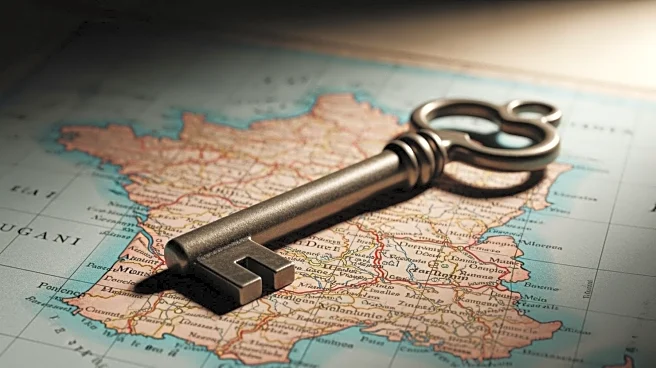What's Happening?
Nicolas Sarkozy, the former President of France, has entered La Santé Prison in Paris to begin serving a five-year sentence. Sarkozy was convicted of criminal conspiracy related to the alleged Libyan financing
of his 2007 presidential campaign. Despite his appeal, the sentence is provisionally enforceable, meaning he must serve time while awaiting the appeal's outcome. Sarkozy's incarceration marks a significant moment in French political history, as he is the first modern French leader to be imprisoned.
Why It's Important?
Sarkozy's imprisonment underscores the judiciary's independence in France and highlights the legal consequences of political corruption. This event may influence public trust in political figures and institutions, potentially leading to increased scrutiny and demands for transparency. It also serves as a cautionary tale for politicians worldwide about the repercussions of illegal campaign financing and corruption. The case could impact France's political landscape, affecting future elections and party dynamics.
What's Next?
Sarkozy's legal team is expected to file for his release during the appeal process, with the court having up to two months to decide. If denied, further appeals could be made. The situation may provoke reactions from political allies and adversaries, influencing public discourse and media coverage. Sarkozy's imprisonment could also lead to discussions on prison reform and the treatment of high-profile detainees.








